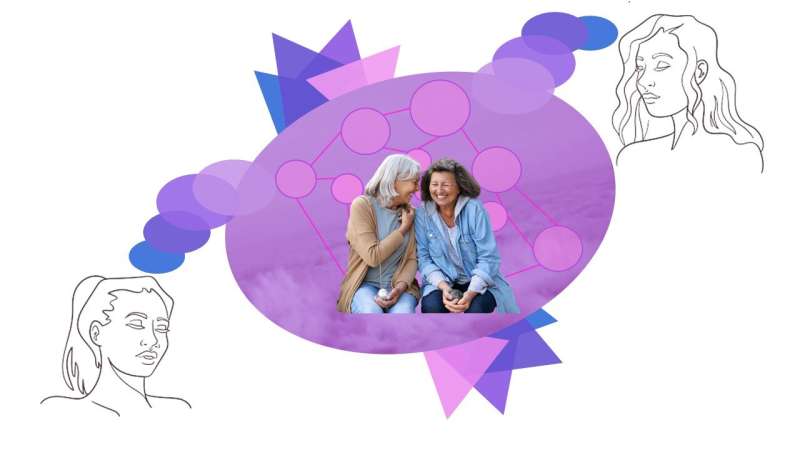This article has been reviewed according to Science X's editorial process and policies. Editors have highlighted the following attributes while ensuring the content's credibility:
fact-checked
peer-reviewed publication
trusted source
proofread
Psychology researchers find collaborative imagination increases social connection

The ability to imagine is pivotal for human development, driving creativity and problem-solving. It may also influence our relationship with others, according to new research.
A team of researchers, led by Brendan O'Connor of the University at Albany, has developed a new framework for investigating imagination as a process in which individuals co-create shared representations of hypothetical events —what they're calling "collaborative imagination."
Using the framework, O'Connor and colleagues from the University of British Columbia in Canada and University of Nottingham in the UK, believe they are making important strides toward understanding the ways that imagination fosters social connection.
Findings were published in the Proceedings of the National Academy of Sciences.
"The research community has learned a great deal over the last few decades about the science of imagination," said O'Connor, an associate professor in UAlbany's Department of Psychology and director of the Imagination and Moral Cognition Lab.
"However, it has been viewed as an individual process, focusing on how people imagine personal events independently. Our research instead explores imagination as a collaborative process, in a way that has never been done before."
Imagining a future together
To observe collaborative imagination, the researchers conducted two observational studies. The first was in-person with 120 undergraduate students, and the second via Zoom with 124 participants from the general public.
Participants were assigned to pairs and introduced to each other. They were then asked to imagine future events in as much detail as possible, either collaboratively with the other participant, or independently in a separate room. Another experiment involved either collaborating on a game with the other participant or collaboratively discussing an image depicting an event with people and objects in a specific location.
The researchers used a social connection rating scale and natural language processing tools to examine the impact of collaborative imagination across the different experiments.
"Our research has strong potential to change the way we view imagination by providing a novel theoretical framework and evidence that imagination itself is a socially creative process," said Zoë Fowler, a graduate researcher in O'Connor's lab, who helped develop the study concept and experiment design.
In both studies, results revealed that collaboratively imagining a shared future increased social connection among participants, compared to imagining a shared future independently or collaborating on non-imaginative tasks.
Furthermore, collaborative imagination increased participants' engagement in mentalizing (for example, considering their partner's thoughts and feelings) and heightened the vividness of the imagined event.
"These findings shed new light on the nature and structure of imagination with implications for better understanding interpersonal relationships, future thinking and the formation of collective beliefs across social networks," said Daniela Palombo, an assistant professor in the Department of Psychology at the University of British Columbia and study co-author. "We believe the findings will be relevant to researchers in a variety of disciplines."
Using imagination for social good
The new findings are the latest in a series of research articles published by O'Connor investigating the impacts of imagination, including a study from 2019.
His lab has a particular interest in understanding how imagining the future and remembering past events can influence the moral decisions we make in the present.
"Individuals imagining future events together can lead to the formation of collective beliefs," said O'Connor. "We hope to continue building on our findings in a way that helps people harness the power of imagination to make positive changes in their everyday lives and society at large."
More information: Zoë Fowler et al, Collaborative imagination synchronizes representations of the future and fosters social connection in the present, Proceedings of the National Academy of Sciences (2024). DOI: 10.1073/pnas.2318292121
Journal information: Proceedings of the National Academy of Sciences
Provided by University at Albany





















